
Selecting the right ERW tube mill machine can determine the success or failure of your pipe manufacturing operation. With global steel pipe demand continuing to grow across construction, oil and gas applications, and manufacturing sectors, choosing equipment that delivers consistent quality, optimal performance, and reliable production capacity has never been more critical.
An ERW tube mill transforms steel coils into welded steel tubes through a sophisticated manufacturing process involving electric resistance welding technology. The choice between different tube mill machines directly impacts your production efficiency, product quality, and long term success in competitive markets.
This comprehensive guide examines the essential criteria for selecting an ERW tube mill machine, evaluates leading China manufacturers, and provides practical insights for making an informed investment decision that aligns with your production needs and business objectives.
Understanding your specific production requirements forms the foundation for choosing the right tube mill machine. The pipe diameter range represents one of the most critical factors, with most industrial ERW tube mills accommodating diameters from Φ25mm to Φ630mm. However, your target market and customer specifications will determine whether you need equipment capable of producing smaller precision tubes or larger structural pipes.
Wall thickness capabilities typically range from 1.0mm to 4.0mm, though some specialized mill machines can handle even thicker materials. The relationship between pipe diameter and wall thicknesses affects not only your equipment choice but also your forming rolls design and welding operations parameters.
Production capacity requirements vary significantly based on your market demand and business model. Modern ERW tube mills achieve production speeds ranging from 20 to 120 meters per minute, with higher speeds generally associated with smaller tube diameters and thinner wall thickness specifications. Determining your required production volume helps narrow down suitable equipment options and ensures you don’t over-invest in unnecessary capacity.
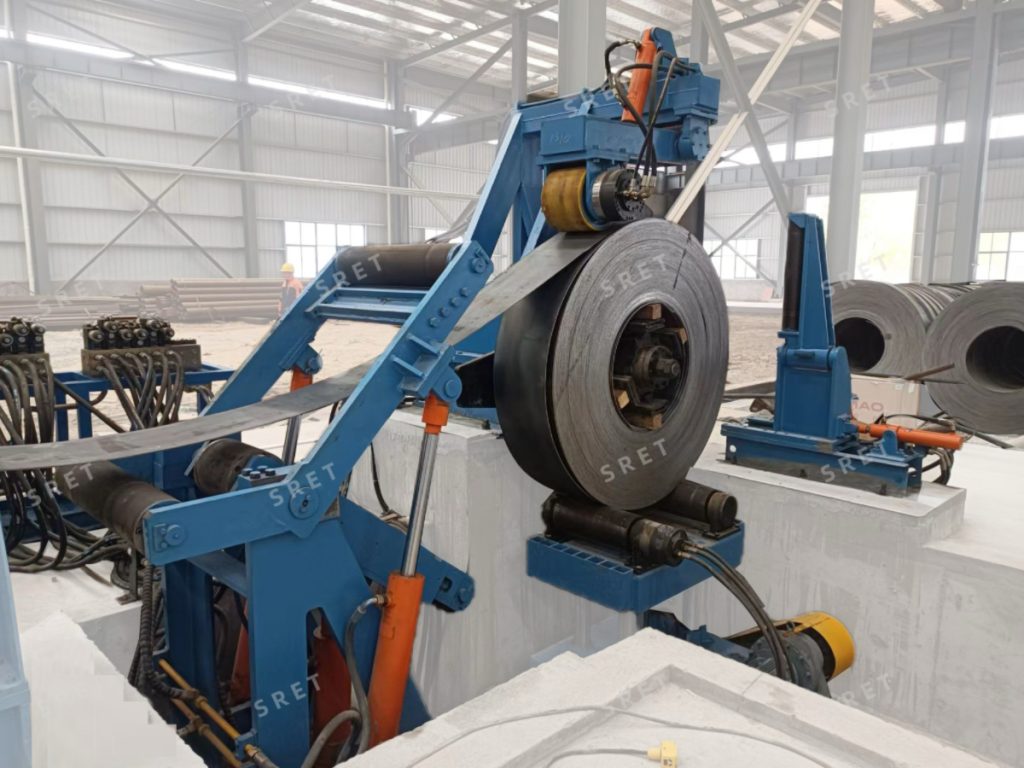
Strip width compatibility directly correlates with your steel coil procurement strategy. Standard tube mill machines accommodate strip widths from 78mm to 240mm, which determines the range of pipe sizes you can produce from specific steel coil configurations. This compatibility affects both your raw material sourcing flexibility and overall production efficiency.
The welding technology selection between high-frequency ERW and traditional electric resistance welding methods significantly impacts weld seam quality and production speed. High frequency welding systems typically operate around 300Kw power levels and produce superior welds with minimal heat affected zones, making them essential for applications requiring high structural integrity.
Automation level considerations extend beyond basic production to include roll change systems, quality control integration, and advanced control systems. Modern tube mill lines feature automated forming rolls positioning, computerized dimensional monitoring, and integrated inspection systems that reduce labor costs while ensuring consistent quality throughout production runs.
China has emerged as the global leader in ERW tube mill manufacturing, combining advanced technology with competitive pricing and comprehensive service networks. Among the top manufacturers, New Victor Tube Mills stands out with over 30 years of experience and an impressive portfolio of 30+ patents. Their equipment serves customers in 70+ countries and achieves precision tolerances of ≤0.02mm, demonstrating their commitment to dimensional accuracy and product quality.
KINGREAL ROLL FORMER brings more than 20 years of experience specializing in customized turnkey ERW tube mill systems. Their approach emphasizes complete production line integration, from raw material handling through finished product packaging. This comprehensive capability makes them particularly attractive for companies seeking complete manufacturing solutions rather than individual machine components.
Hebei Taoguan Technology Co., Ltd has carved out a specialized niche in high-frequency longitudinal welded pipe units and large-diameter systems. Their expertise in handling challenging applications makes them a preferred choice for industries requiring specialized pipe specifications or non-standard dimensional requirements.
When evaluating China tube mill manufacturers, R&D capabilities and patent portfolios provide insight into technological advancement and innovation commitment. Leading manufacturers invest heavily in developing improved welding processes, enhanced automation systems, and energy-efficient production technologies that deliver competitive advantages to their customers.
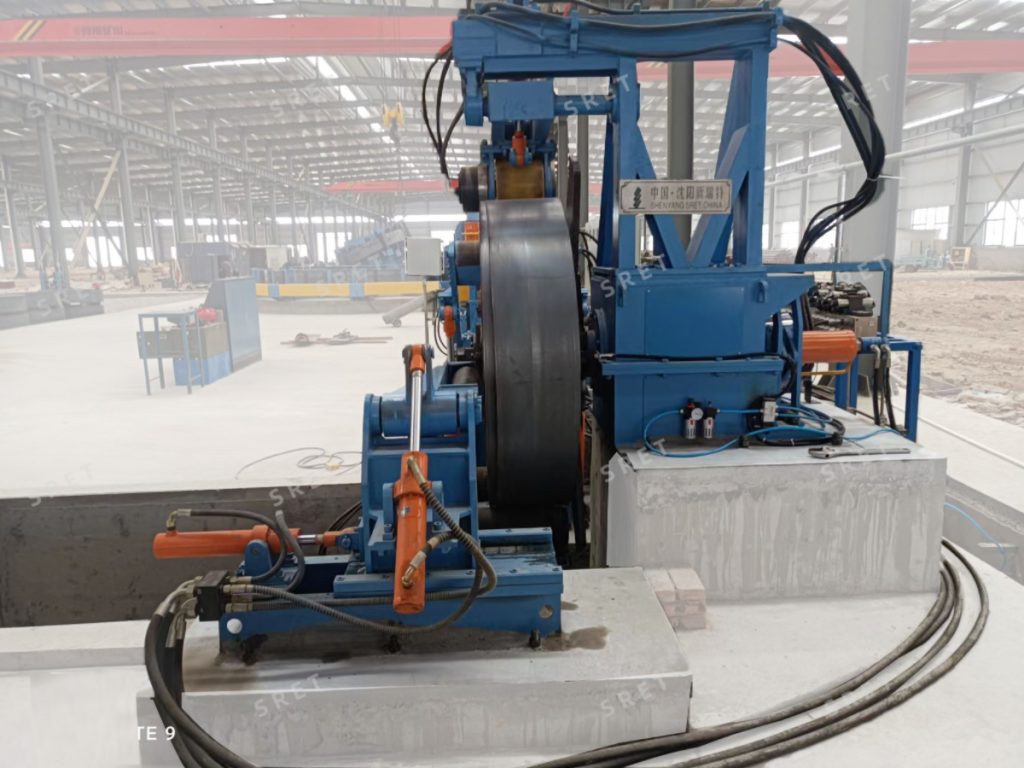
Global service networks represent a crucial factor in manufacturer selection. The best China suppliers maintain technical assistance capabilities in major markets, ensuring rapid response to maintenance services needs and readily available spare parts. This international presence significantly reduces equipment downtime and supports optimal performance throughout the equipment lifecycle.
Manufacturer evaluation should also consider their track record with existing customers in your industry. Successful installations in similar applications provide valuable insights into equipment performance, reliability, and the manufacturer’s ability to deliver promised capabilities under real-world operating conditions.
High-frequency welding systems form the technological heart of modern ERW tube mills, typically utilizing approximately 300Kw power to achieve precise edge welding of steel strips. This technology employs both skin and proximity effects to generate concentrated heat exactly where the steel strip edges meet, creating uniform welds with superior metallurgical properties compared to conventional welding methods.
Material compatibility extends well beyond basic carbon steel to include stainless steel, low alloy steel, and specialized alloys depending on your target markets. The tube mill machine must accommodate different material characteristics, including varying thermal properties, work hardening tendencies, and corrosion resistance requirements. For galvanized steel applications, additional considerations include coating preservation and surface finish quality.
Production speed capabilities demonstrate significant variation based on pipe diameters and wall thickness combinations. While smaller diameter steel tubes may achieve speeds approaching 80 meters per minute, larger structural pipes typically operate at 20-40 meters per minute to ensure proper forming and welding quality. Understanding these relationships helps establish realistic production capacity expectations.
Quality certifications including API, ASTM, EN, and JIS standards compliance ensure your pipe products meet international specifications for various industries. Oil and gas applications particularly require API certification, while construction projects may specify ASTM or EN standards. Your tube mill machine must be capable of producing pipes that consistently meet these rigorous quality requirements.
Advanced features like RQCS (Roll Quick Change System) minimize downtime during product changeovers by enabling rapid forming rolls replacement. This capability becomes increasingly important for operations producing multiple pipe specifications or serving diverse markets requiring frequent production schedule adjustments.
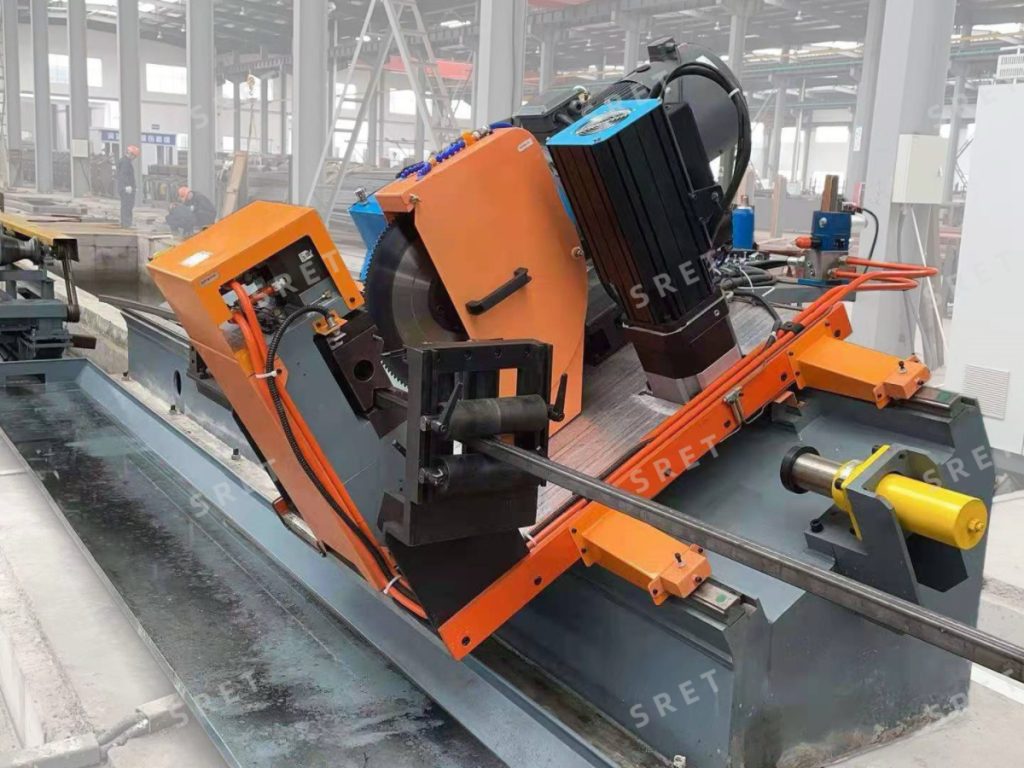
The welding process itself relies on sophisticated precise control systems that monitor and adjust welding parameters in real-time. These systems ensure consistent weld penetration, proper heat input, and optimal weld seam appearance across the entire production run. Advanced tube mills incorporate feedback control mechanisms that automatically compensate for material variations and maintain consistent quality.
The hydraulic decoiler system initiates the manufacturing processes by unwinding steel coils and feeding material into the production line. Modern systems feature automatic coil splicing capabilities that enable continuous operation without stopping production between coils. This technology significantly improves overall production efficiency and reduces labor requirements while maintaining consistent material feed rates.
Strip preparation encompasses several critical operations including shearing, edge preparation, and butt welding technology for joining coil ends. The quality of strip preparation directly impacts final pipe specifications, particularly regarding dimensional accuracy and surface finish. Advanced preparation systems incorporate laser measurement and automated adjustment capabilities to ensure optimal material condition before forming begins.
The roll forming system represents the core of the tube mill machine, utilizing computer-controlled positioning to achieve precise dimensional accuracy. Multiple forming stands gradually transform the flat steel strip into a tubular shape while maintaining strict control over diameter, wall thickness, and roundness specifications. The forming rolls design and positioning accuracy determine the final pipe quality and dimensional consistency.
High-frequency welding stations employ both skin and proximity effects to achieve fusion of the steel strip edges without additional filler material. The welding power and frequency must be precisely controlled based on material thickness, composition, and production speed to ensure optimal weld penetration and strength. Modern systems incorporate real-time monitoring to detect and correct welding irregularities.
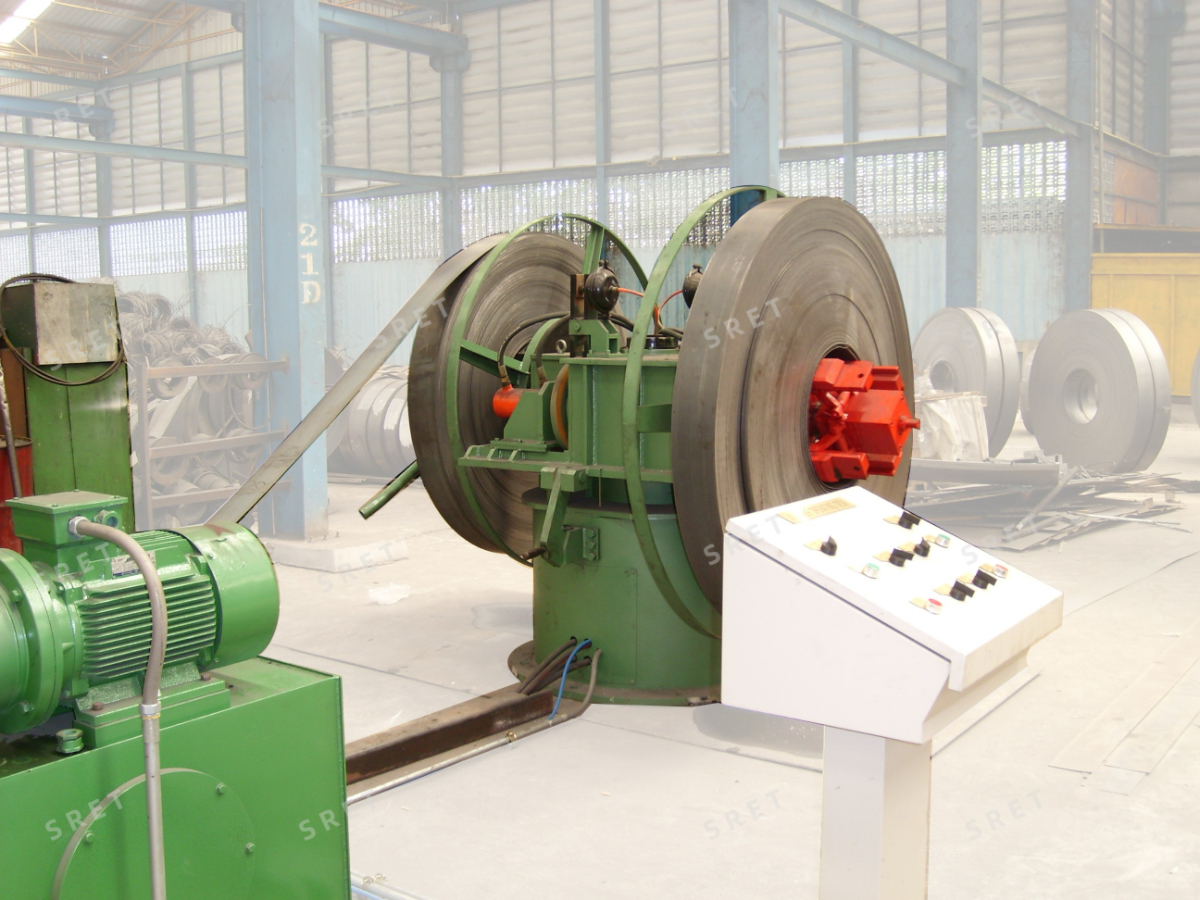
Sizing, straightening, cutting, and inspection systems complete the manufacturing process by ensuring finished products meet all specified requirements. Sizing operations correct minor dimensional variations from the forming and welding processes, while straightening removes residual stresses and ensures proper pipe geometry. Flying saw cutting systems maintain production speed while delivering precise length control for finished steel pipes.
Oil and gas industry applications demand high-strength ERW tubes meeting strict API standards for pipeline transport systems. These applications require superior weld seam integrity, precise dimensional accuracy, and consistent material properties throughout long pipeline runs. The tube mill machine must be capable of producing pipes with wall thicknesses and pressure ratings suitable for various transmission and distribution applications.
Chemical processing environments require corrosion-resistant stainless steel pipes with exceptional surface finish quality and contamination resistance. The manufacturing process must maintain strict cleanliness standards and produce pipes with smooth internal surfaces suitable for process fluid transport. These applications often require additional surface treatments and enhanced inspection procedures.
Food and beverage industry applications mandate hygienic stainless steel tubes with mirror finish surfaces and compliance with sanitary standards. The welding process must produce smooth, crevice-free seams that resist bacterial growth and enable effective cleaning. These specialized requirements often necessitate additional polishing and surface treatment capabilities.
Construction industry applications emphasize high throughput production of structural steel pipes with consistent dimensional accuracy and cost efficiency. These applications typically involve larger diameter pipes with varying wall thicknesses to meet structural load requirements. The tube mill line must be capable of rapid changeovers between different specifications to accommodate diverse construction project needs.
Automotive applications require precise dimensional tolerance tubes for various automotive applications including chassis components, exhaust systems, and hydraulic systems. These applications demand exceptional dimensional consistency, superior surface finish, and reliable mechanical properties. The manufacturing process must maintain tight control over all parameters to meet automotive quality standards.
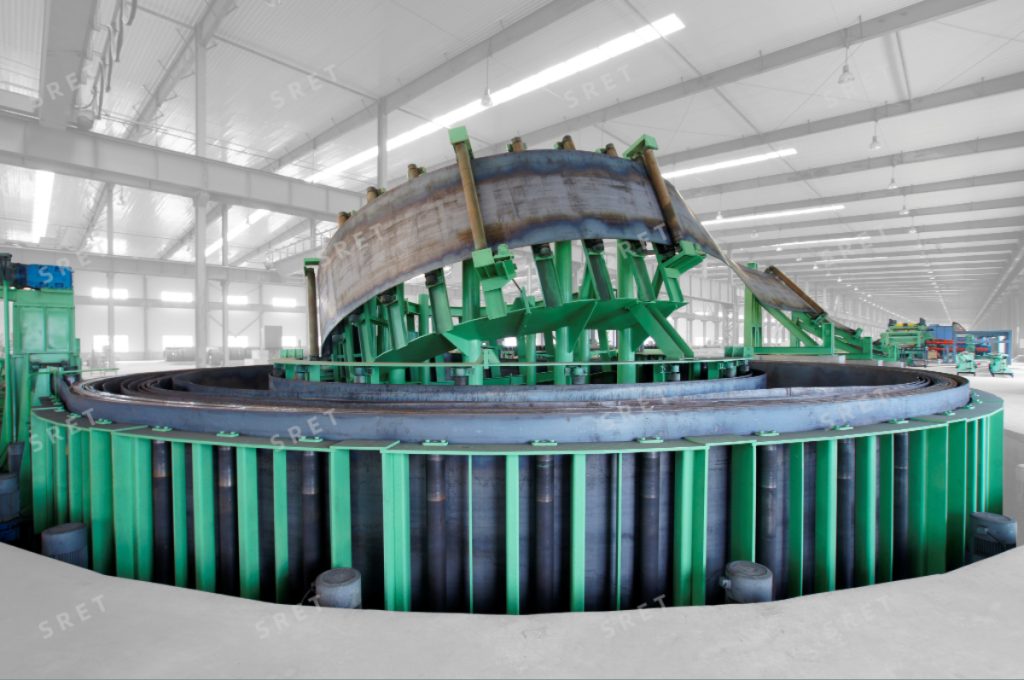
Each industry application brings specific material compatibility requirements, quality standards, and testing protocols that influence tube mill machine selection. Understanding these diverse requirements helps identify equipment capabilities necessary to serve multiple markets effectively while maintaining consistent quality across all applications.
Factory space requirements extend well beyond the tube mill machine itself, typically requiring over 100 meters of length for complete tube mill lines including material handling, quality control, and finished product storage areas. The mill line layout must accommodate overhead crane access, maintenance walkways, and utility connections while maintaining efficient material flow throughout the production process.
Electricity costs represent a significant ongoing expense, typically accounting for 15-25% of total production costs due to high-frequency welding power requirements and motor drive systems. Understanding local utility rates and peak demand charges helps establish accurate production cost projections and identify opportunities for energy management optimization.
Installation timeline considerations require several weeks of preparation, equipment positioning, and commissioning with specialized technical expertise. The complexity of modern tube mill machines necessitates factory-trained technicians for proper installation and initial setup. Planning for extended installation periods helps avoid production delays and ensures proper equipment commissioning.
Market research becomes essential to match production capacity with local demand patterns and competitive pricing structures. Understanding regional pipe specifications, delivery requirements, and customer preferences influences equipment selection and production planning strategies. This analysis helps optimize tube mill machine configuration for maximum market competitiveness.
Total cost of ownership encompasses machinery acquisition, infrastructure development, operational expenses, and ongoing maintenance services throughout the equipment lifecycle. While initial purchase price represents a significant consideration, long-term operating costs and production efficiency often provide greater impact on overall profitability and return on investment.
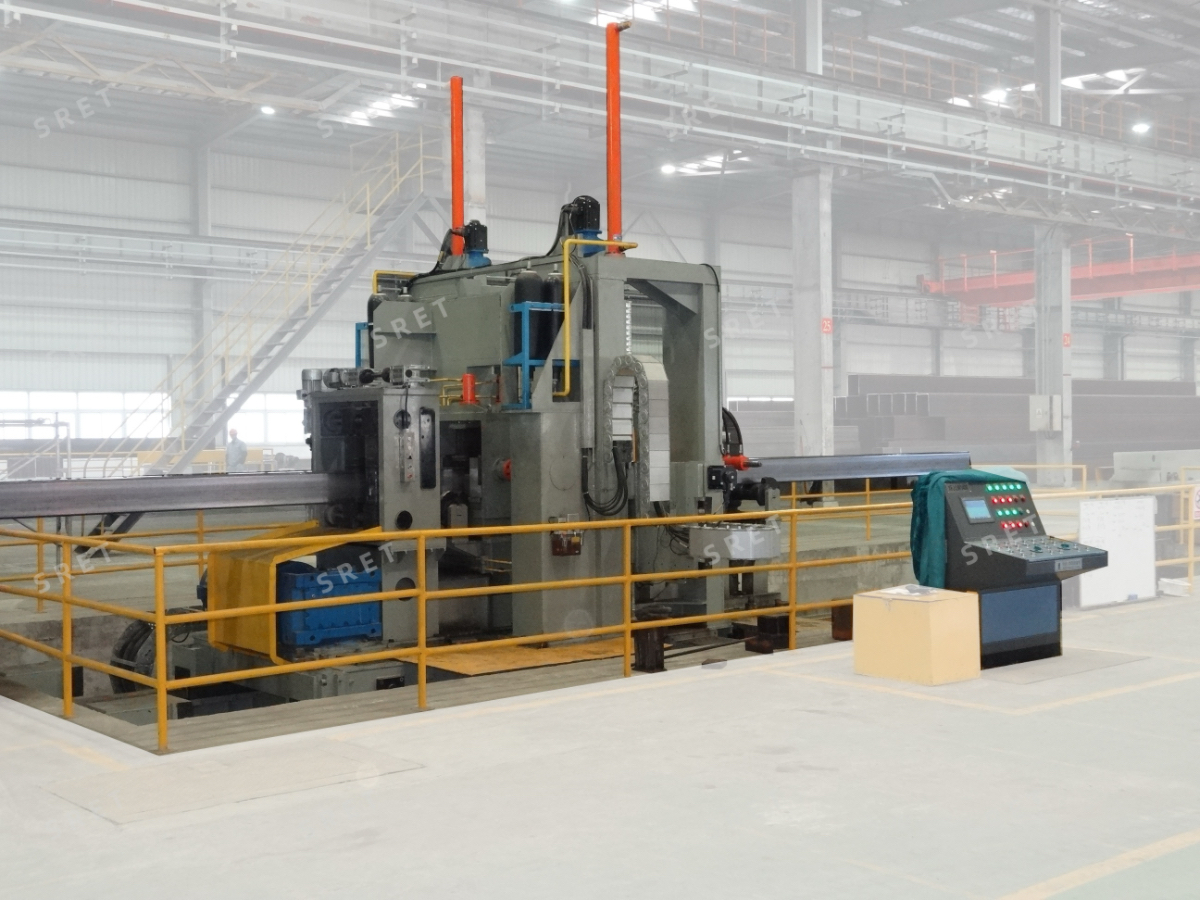
Working capital requirements for raw material inventory, particularly steel coil procurement, represent substantial ongoing investment needs. The relationship between production capacity, order fulfillment requirements, and inventory management directly affects cash flow and financial planning considerations.
Conducting factory visits provides essential verification of manufacturing capabilities and quality control systems that cannot be assessed through documentation alone. These visits offer opportunities to observe actual production processes, examine finished equipment quality, and evaluate the manufacturer’s technical expertise and organizational capabilities. Experienced buyers emphasize the importance of witnessing actual production operations rather than relying solely on demonstration facilities.
Reviewing customer success cases and references from similar industries provides valuable insights into real-world equipment performance and manufacturer support quality. Contacting existing customers directly offers candid feedback about equipment reliability, production efficiency, and the manufacturer’s responsiveness to technical support needs. These conversations often reveal practical considerations not apparent in marketing materials.
Assessing financial stability and long term support commitment requires evaluation of the manufacturer’s business continuity and commitment to the tube mill machine market. Established manufacturers with diversified customer bases and ongoing R&D investment demonstrate greater likelihood of providing sustained support throughout the equipment lifecycle.
Technical support evaluation encompasses training programs, maintenance services, and troubleshooting assistance availability. The quality and accessibility of technical assistance directly impacts production uptime and operational efficiency. Leading manufacturers provide comprehensive training programs, detailed documentation, and responsive support channels for addressing operational issues.
Warranty comparisons, performance guarantees, and spare parts availability represent crucial factors affecting long-term operating costs and equipment reliability. Comprehensive warranty coverage demonstrates manufacturer confidence in equipment quality, while performance guarantees provide assurance of meeting specified production targets. Readily available spare parts ensure minimal downtime for routine maintenance and unexpected repairs.
The evaluation process should include detailed technical specifications review, commercial terms analysis, and implementation timeline assessment to ensure alignment with business requirements and project constraints. This comprehensive approach helps identify the optimal balance between equipment capabilities, investment requirements, and long-term business objectives.
Choosing the right ERW tube mill machine requires careful consideration of technical specifications, manufacturer capabilities, and business requirements. The investment represents a significant commitment that will impact manufacturing capabilities and market competitiveness for years to come. By thoroughly evaluating production needs, manufacturer options, and implementation requirements, companies can select equipment that delivers optimal performance, consistent quality, and sustainable profitability in their target markets.
